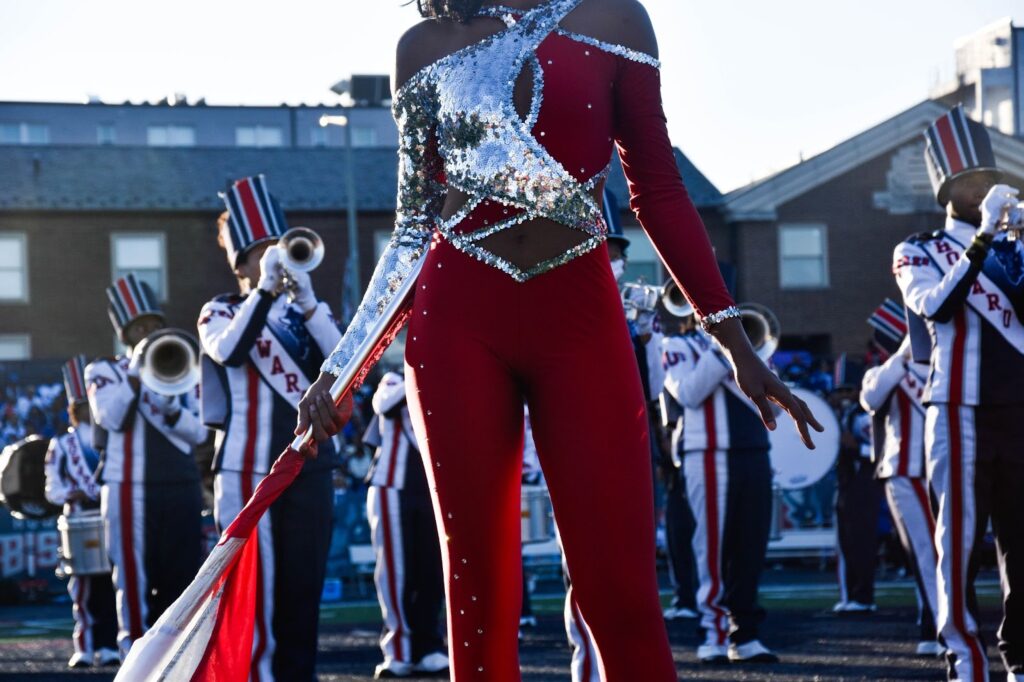
Mississippi Valley State University (MVSU) made headlines last month when it revealed that its marching band would perform at President-elect Donald Trump’s 2025 inauguration. The announcement quickly ignited controversy on social media, particularly within the HBCU community.
For some, it was a moment of pride–a rare opportunity for a small HBCU to showcase its talent nationally. For others, it raised questions about performing for an administration led by a president criticized for his stance on HBCUs and the Black community.
MVSU is not the first HBCU to have a marching band performance at Trump’s presidential inauguration. In 2017, Talladega College, an HBCU in Alabama, also was invited to perform at Trump’s inaugural ceremony.
After their invitation, MVSU launched a GoFundMe campaign to raise funds for the trip, citing a total cost of $350,000 for travel, accommodations, meals, and equipment. By January, the campaign had raised more than $300,000.
As for Howard’s Showtime marching band, who performed at former President Biden’s 2020 inauguration, the news brought back mixed feelings about the intersection of politics and performance.
Some students struggled with whether the invitation to perform was a gesture of recognition or simply a form of political exploitation.
As MVSU prepares for its historic moment in D.C., Showtime band members reflected on the complex nature of the performance. Sophomore ‘Showtime’ trombonist Alana Canino was shocked by the news.
While she acknowledged that HBCU bands have performed at inaugurations before, this situation felt different.
She felt uncomfortable with the idea of an HBCU band performing for a president whose administration has repeatedly been unsupportive of HBCUs.
“It just didn’t feel right for an HBCU band to perform at this inauguration,” she said.
First-year acting major Kasyiah Dunham expressed a similar sentiment, voicing that the performance felt like a betrayal of the values HBCUs stand for.
“It’s disappointing and embarrassing to represent someone who’s against what our schools need,” Dunham said.
Danham’s disappointment stems, in part, from the Trump administration’s inconsistent actions on HBCU issues. While Trump signed a 2017 exclusive order supporting these institutions, his proposed budget cuts to these institutions often fell short of meeting HBCUs’ financial needs.
Dunham said she was concerned about how the performance would send the wrong message to both the public and the Trump administration, reinforcing the idea that HBCUs are willing to perform for any political figure, regardless of how they treat the institutions.
“It’s just going to make things worse for us, it’s like we’re willing to take anything, and that’s not how it should be,” she said.
Jahari Parish, a senior political science major and section leader of Howard’s Thunder Machine Drumline said how he thought this performance reflects the challenges that come with such high-profile opportunities.
“I didn’t have a big reaction,” Parish said. “I just hope they do well, considering they’re representing HBCUs for someone [Trump] who does not respect HBCUs.”
For Parish, the event’s significance is in what it represents in the current divisive political climate—a chance for HBCUs to continue asserting their values, regardless of political shifts.
“It’s not about bringing Trump voters and non-Trump voters together. It’s about maintaining a sense of identity and community in a time of division.”
Parish acknowledged that MVSU’s performance could bring greater visibility for HBCU bands around the nation.
“If one of us is performing, that’s a win for all of us, we’re all in the same fight, and when one of us gets a spotlight, it shines back on all of us,” he said. “Maybe in 2028, we’ll see another HBCU band at the inauguration.”
Copy edited by Anijah Franklin
































